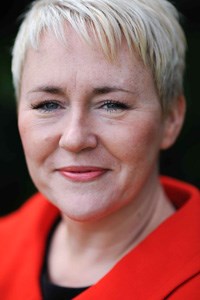The NHS needs strong, stable leaders who are able to strategically plan and look ahead while taking the immediate needs of their staff and patients into account. We can spend years nurturing and supporting leaders to develop and progress into a chief executive role, yet the average tenure is just 18 months. What’s making people think about moving on so soon? And how can we get better at keeping them?
In the fourth of a series of blogs, Suzanne Tracey, chief executive of Royal Devon and Exeter NHS Foundation Trust and a graduate of the aspiring chief executive programme, discusses her experience and the impact the programme has had on her, her colleagues and the system. The programme is a collaboration between NHS Providers, the NHS Leadership Academy and NHS Improvement.
I was a participant in cohort one of the aspiring chief executive programme and it is not an overstatement to say it is the best personal development I have undertaken in 24 years in the NHS.
I joined the programme as a deputy chief executive/chief financial officer with a desire to become a chief executive. The very first session positioned the central focus of the programme on patients and the public, and this theme together with a determination to develop our skills around the equality and diversity agenda became golden threads of the programme.
It is not an overstatement to say that the aspiring chief executive programme is the best personal development I have undertaken in 24 years in the NHS.
Chief executive
I loved the way the programme was structured with a virtual campus that allowed us to undertake personal study across a range of materials, including written reports, video interviews and a logbook of personal reflections.
We then came together at a number of workshops during the year to apply our learning thorough a series of novel and thought provoking exercises: my kind of learning! The mantra of the programme is to develop a new breed of chief executives who take a different approach to address the issues facing the NHS now and into the future.
The mantra of the programme is to develop a new breed of chief executives who take a different approach to address the issues facing the NHS now and into the future.
Chief executive
We have been encouraged to develop as system leaders and this was really evident in the work that we did and I feel much better equipped as a result.
I guess though that one of the biggest surprises as a participant is how much I learned about myself. Alongside other elements of the course there is the work you undertake with your Praxis Group, comprising around seven of your fellow aspirant chief executives and two facilitators (including an existing chief executive).
Although this looks like an action learning set, it feels a lot different. You are encouraged to reflect (and I mean really reflect) on what makes you you and why you do what you do. I shared stuff with this group that I haven’t even shared with myself before and you couldn’t ask for a more supportive and encouraging environment to do it in.
I finished the course with a support network of fellow chief executives and senior directors that I know I can call on at any time.
Chief executive
The bonds that you develop as a team are so strong as a result and I finished the course with a support network of fellow chief executives and senior directors that I know I can call on at any time. As a newly appointed chief executive this is invaluable.
So that brings me to where I am currently. Halfway through the programme I applied for the vacant chief executive role at my existing trust and have now been in post for over a year. The programme really prepared me for what was in store, both for the recruitment process but also in the role.
The most important thing I took from my time on the programme is that is ok to be yourself and do things in your own style, rather than to attempt to fit a stereotype of what you think a chief executive should be. How liberating is that?
Chief executive
However, the most important thing I took from my time on the programme is that is ok to be yourself and do things in your own style, rather than to attempt to fit a stereotype of what you think a chief executive should be. How liberating is that?
12 months in, I love the job I’m doing and relish the opportunity to make a difference for my own local community.
The aspiring chief executive programme is a collaboration between NHS Providers, the NHS Leadership Academy and NHS Improvement. It was created in 2014 to ensure a strong, ongoing, pipeline of candidates for the role of NHS trust chief executive. The programme is designed to prepare those with the potential to become chief executives in the next 12-24 months for these key roles.
The programme has had two cohorts – one which graduated in early 2017 and one nearing completion. Of the 28 participants so far, 10 have gone on to become trust chief executives. Providing the right leadership support for these individuals will be key to ensure they have the right skills, attitudes and behaviours to build a better NHS. Find out more about the Aspiring Chief Executive programme.
About the author

